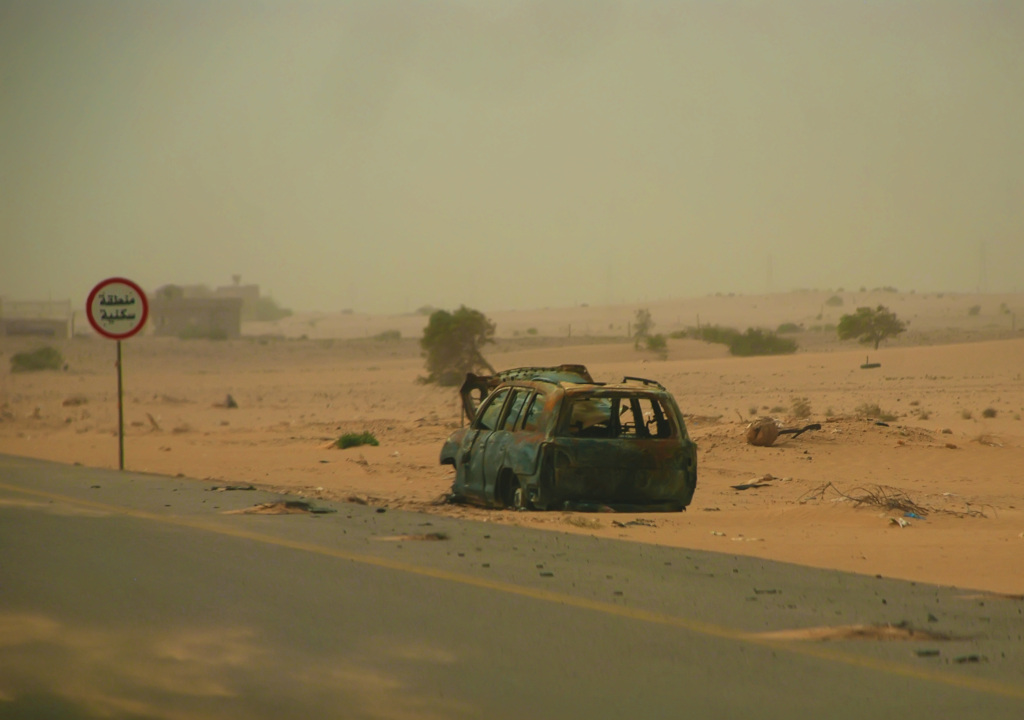
Libya
1,884
Wagner Group personnel in Libya peaked at 1,884 in 2020, according to internal documents.
7
Wagner established at least seven bases and extractive sites across the country.
247
At least 247 bodies were discovered in mass graves near Tarhuna after Khalifa Haftar’s forces withdrew from their failed siege of Tripoli.
BACKGROUND
Libya emerged as a major theater for the Wagner Group’s operations in 2018 as Yevgeny Prigozhin’s outfit extended its influence in North Africa and the Mediterranean. Internal documents revealed a force of 1,884 personnel by 2020, a substantial increase from the Government of National Accord (GNA) estimate of 600–800 operatives in 2019. The group established at least seven bases and seven extractive zones across the country.
Wagner’s Libyan Intervention
Wagner’s Libyan operations began in the cities of Benghazi and Tobruk, ostensibly as Kremlin-backed military trainers for General Khalifa Haftar’s Libyan National Army (LNA), which controls much of Libya’s eastern and southern territory. The LNA regards the UN-recognized GNA as illegitimate, citing disputes over political legitimacy, ideological differences, and accusations of foreign influence. Over three years, the Wagner Group bolstered Haftar against the GNA, aiming to diminish Western influence in Libya.
In 2019, Prigozhin’s network launched a two-pronged campaign: a disinformation effort promoting Saif al-Islam Gaddafi (son of the late dictator Muammar Gaddafi) and Haftar, coupled with direct military support for Haftar’s push toward the capital city of Tripoli. The disinformation campaign used broadcast and social media to foment popular discontent against the GNA. Between 2019 and 2020, Wagner forces backed Haftar’s offensive to capture Tripoli, resulting in a prolonged siege. During this period, Wagner inflicted casualties on GNA soldiers and mined areas around the capital with improvised explosive devices.
Kinetic and Information War
Wagner’s strategic footprint in Libya included bases in Al Marj, Tarhuna, Al Jufra Airbase, Ar Rajmah Hospital, and Haruba Airfield. Tarhuna, which is close to Tripoli, became notorious after Haftar’s forces withdrew from their failed siege, as multiple mass graves containing at least 247 bodies were discovered.
A Wagner tablet recovered near Tripoli in early 2020 provided insights into the group’s operations and related business entities. Internal documents further revealed the presence of prominent Wagner commanders in Libya, including Anton Yelizarov, Andrei Ivanov, and Dmitry Baturin. Among them, Alexander “Ratibor” Kuznetsov, the high-profile commander of Wagner’s First Assault Detachment, sustained a significant injury during operations. Former Wagner fighters characterized their mission as “promoting the interests of the state beyond our country’s borders.”
Maxim Shugaley, another key figure in Prigozhin’s Libyan operations, became a focal point of the network’s propaganda machine following his 2019 detention. The Foundation for National Values Protection (FZNC), a think tank operating as part of Prigozhin’s global influence network, contributed to advancing Russian government narratives. In a striking example of this propaganda effort, a Prigozhin-affiliated company produced a trilogy of action films inspired by Shugaley’s detention in Libya. Shugaley was freed in December 2020.
Transitioning to the Africa Corps
Wagner continued providing Haftar with air support until the October 2020 ceasefire, after which it resumed its role as military trainers and an oil field protection force. Their actions in Libya showcased the group’s ability to blend narrative creation, political support, and military action in unstable states. Following Prigozhin’s 2023 mutiny and death, Libya became central to the Kremlin’s efforts to reassure its partners of continued support. Deputy Defense Minister Yunus-bek Yevkurov’s frequent visits to Libya in 2023–2024 facilitated the transition from Wagner to the newly formed Africa Corps, capitalizing on Russia’s established military ties with Libya and close relationship with Haftar.
About this Project
Learn more about our work investigating and documenting Russia's irregular warfare strategy.

